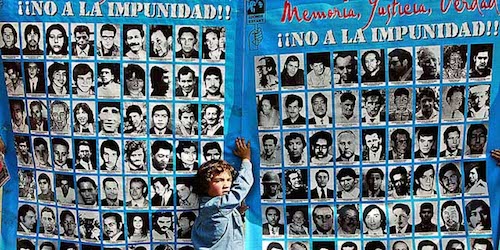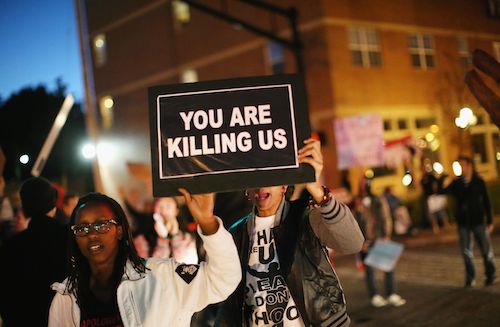THEY KEPT KILLING HIM, EVEN THOUGH HE DOES NOTHING TO THEM
1
In Don Mee Choi's new and excellent pamphlet Freely Frayed,ᄏ=q, & Race=Nation (Wave Books, 2014), she says the following about her work translating the amazing Korean poet Kim Hyesoon:
My translational intent has nothing to do with personal growth, intellectual exercise, or cultural exchange, which implies an equal standing of some sort. South Korea and the U.S. are not equal. I am not transnationally equal. My intent is to expose what a neocolony is, what it does to its own, what it eats and shits. Kim Hyesoon’s poetry reveals all this, and this is why I translate her work.
I start here with admiration for Don Mee Choi’s willingness to state, in such clear terms, the politics and the personal connection to the writer she translates, and to situate her writing and translation practice as one with nation-defining, inferno-rendering, dissident implications. I too feel a great personal affinity and political connectedness to Raúl Zurita, the Chilean writer I have translated, a writer who has in many ways helped me to figure out what it means to be a writer, what is at stake and what should be at stake, and how to speak in beautiful and direct ways about state violence in its many capacities. For Zurita, the impossible purpose of poetry under the Chilean dictatorship was, as he has told me in conversation, "to create an art as powerful as the pain being delivered by the state," and to never let the state off the hook for the various ways it destroys us.
In an interview I conducted with Zurita this year, he told me that he wanted to use the title of Mein Kampf for his first book, Purgatorio (1979): “We lived in a country occupied by the dictatorship," he said, "which was directly in line with the thinking of the Nazis,” and thus the title Mein Kampf would have appropriately spoken to what he took to be the realities of a nation occupied by murderous, fascist Nazis (and of course it should be said that Karl Ove Knausgaard would actually use the title Mein Kampf when the first book in his series came out in 2009).

But it was hard enough to publish anything under the dictatorship, especially a poetry so critical of the dictatorship, so we can understand his choice to not settle upon that title. Nevertheless, this ethos, this ideal, this way of writing a poetry that exposes the overlying and underlying realities of a fucked up nation has always been at the heart of everything Zurita writes. It's a model for me: this for me is how to write about the world, this is what poetry can do, this is what poetry, I think, should do. I don't impose these models on other people. I simply know what it is I care about.
2
I don't know if the Grand Jury's refusal to charge Darren Wilson for the killing of Michael Brown tells me anything I already didn't know about what it means to be a UnitedStatesian. But one thing worth saying here directly, in no uncertain terms, in clear and plain language: we live in an occupied country, an occupied country where the police and the "neighborhood watch" have free reign to kill young Black men with no expectation of punishment. We live in an occupied racist police-state. We live in a historically racist and occupied police state that does not hide its racism and its occupation. This not a subtlety. In a different manner, racism functions through subtleties. But in this manner, in the violence subjected to Black bodies by the police, the history of this violence, the ways in which the history of this violence continues to repeat itself and repeat itself ad nauseam: this is not a subtlety; it's a racist and brutal occupation. Why it takes moments as "high profile" as the killings of Trayvon Martin and Michael Brown, and the subsequent acquittals of their killers, to draw national and international attention to the occupation and violence that is happening all the time in our cities is a conversation worth happening. That the acts of resistance and protest happening now in Ferguson, that these acts of resistance and protest are not happening all the time, is also a conversation worth having. I don't know if I can have it right now. But I'll just say that as someone who lives in Chicago (with its completely unsubtle racism, with its completely unsubtle segregation, with its completely unsubtle economic isolation of Black and Latino communities—where 88% of the students who attend Chicago Public Schools live below the poverty line, where only 9.4% of Chicago Public Schools students are identified as White), it's a perfectly reasonable question to ask why the city is not always erupting in flames.
We Charge Genocide, an activist group organizing against Chicago Police violence, has recently submitted a report to the United Nations Committee Against Torture, detailing, through numbers and narratives, the normality of the abuse, torture and homicide inflicted upon people of color by the Chicago Police Department; We Charge Genocide concludes that the Chicago Police Department is “in violation of Articles 2, 10, 11, 12, 13, 14 of the Convention of Torture, through the cruel, inhuman, and degrading treatment of youth of color in Chicago.” And this past weekend the UN Convention Against Torture recommended that steps be taken to address these charges.
According to their report, In 2012, 79% of youth arrested in Chicago were Black, although Chicago's Black population is only 33%; from 2009-2011, 92% of taser use involved Black or Latino targets; from 2009-2013, 75% of police shooting victims in Chicago were Black. Only 2% of both excessive force and general complaints against the police resulted in any penalties, and in general those penalties were minor.
This must be stated directly: We live in a racist inferno.
3
On Tuesday of this past week, the day after the announcement of the Grand Jury's decision to not indict Darren Wilson, I went into my Poetry Workshop at the community college where I teach here in Chicago, into a class where white students are a minority; the students wanted to talk about Michael Brown. We'd been reading Shane McCrae's Blood; we'd been reading Kim Hyesoon's Mommy Must Be a Fountain of Feathers and we'd been reading Claudia Rankine's Don't Let me Be Lonely. We had in fact been talking about institutional, extreme violence and racism and how we give words to it throughout the entire semester. The room felt despondent and angry. We turned our attention to poetry.
We started off by reading Cesar Vallejo's “Piedras niegra sobre una piedra blanca”/”Black Stones on a White Stone.” I think about this poem a lot, just as I often think about these lines from Vallejo's “Los Heraldos Negros”:
Hay golpes en la vida, tan fuertes... Yo no sé. Golpes como del odio de dios... - There are blows in life so powerful....I don't know. Blows as if from the hatred of God.
I breathe these lines by Vallejo. If I were to imprint any words on my body, it would be: “There are blows in life so powerful, I don't know.”
Here are some lines from Vallejo's “Black Stones on a White Stone”:
Me moriré en París con aguacero/un día del cual tengo ya el recuerdo./Me moriré en París – y no me corro-/tal vez un jueves, como es hoy, de otoño...
César Vallejo ha muerto, le pegaban/todos sin que él les haga nada;/le daban duro con un palo y duro/tambien con una sog
I will die in Paris with a rainstorm/on a day I already remember,/I will die in Paris—and I don't shy away/perhaps on a Thursday, as today is, inautumn./César Vallejo has died; they kept hitting him,/everyone, even though he does nothing to them,/they gave it to him hard with a club and hard/also with a rope (tr. Rebecca Seiferle)
And in dialogue with Vallejo, one of my students wrote:
Michael Brown has not died; he was murdered....
And then we looked at Lucille Clifton's poem, “For Rodney King, 4/30/92”—which could have easily been written on 11/30/14 just as it could have been written on 11/30/65.
so
the body
of one black man
is rag and stone
is mud
and blood
the body of one
black man
contains no life
worth loving [...]
4
“Is there no value in this skin,” writes Clifton. And, “why should we spare the neighborhood?” Pretty good questions to ask in these moments when the responses of one more manifestation of hundreds of years worth of institutional violence and racism will be condemned by the privileged bodies who don't need to worry about the value of their own skin, who don't need to worry about the state of emergency that is and has always been the present tense. Privileged bodies who ask us to accept that it is reasonable that Black bodies be slaughtered on the streets, who depend on us to be silent as Black bodies are slaughtered on the streets, who call for reasonable responses to the most unreasonable of actions.
5
“The apocalypse," Raúl Zurita tells me in the same interview I mentioned earlier, “is not when the world ends; it's when one single person is killed. The entire universe becomes deformed when one single person is tortured.”
The apocalypse, then, is the murder of Trayvon Martin. The apocalypse is the beating of Rodney King. The apocalypse is the murder of Michael Brown. The apocalypse is the August 5 shooting of John Crawford, a 22-year old Black man gunned down by police in a Walmart for holding a toy gun, (and the cops who killed Crawford were also not indicted by a Grand Jury). The apocalypse is last week's killing by police of Tamir Rice, a 12-year old boy in Cleveland. The apocalypse is the thousands of victims of torture and death at the hands of police in the United States. The apocalypse is all the stories we don't hear, all the Trayvon Martins and Michael Browns and Rodney Kings who don't become national news, who are quietly tortured or killed every day.

6
Poetry. What the fuck? There will always be questions about what it can do. What it should do. How it should respond. What it should be. I don't think I'm intelligent enough to say anything important, here, really. I know one thing: our poetry community's aesthetic debates that ask how form and diction relate to a poem or poet's class affiliation or his/her ability to launch effective political critique, more or less make me want to gag. All I know is what I want in poems. And what I want is to have the bloody inferno that the world is exposed to me in no uncertain terms and with no attempt to make this anymore palatable in order to speak to any particular poetic lineage, aesthetic affiliation or political or communal institution. Vomit out the truths about the infinite pain and violence of our present day inferno, our present day apocalypse: the occupied nation where we die and die and will continue to die and die in. Vomit out the truths about the shameful, racist, bloody apocalypse that keeps killing and killing and killing. Such poetry will, paradoxically, make it a tiny bit easier to really and actually live.
Daniel Borzutzky is a poet and translator living in Chicago. His books of poetry include The Murmuring...
Read Full Biography

